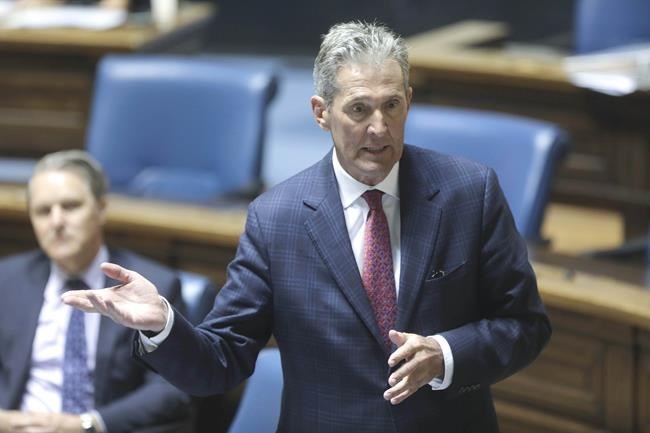WINNIPEG — The Manitoba government registered its first budget surplus in more than a decade in the fiscal year that ended in March, although it is expected to drop back in the red this year due to the COVID-19 pandemic.
Final budget figures released Tuesday show the province ended the 2019-20 fiscal year with a razor-thin surplus of $5 million on $17.6 billion in total spending. The government had originally predicted a $360-million deficit.
The surplus follows a string of deficits that started under the former NDP government in 2009, which led to credit rating downgrades by two international agencies.
Premier Brian Pallister said the province could have faced another downgrade — and higher borrowing rates — had the deficit not been wrestled down.
"That would have been an even greater financial burden on Manitobans," Pallister said.
The surplus is almost certainly temporary. The government has already warned that because of the COVID-19 pandemic, a deficit of $2.9 billion is expected in the current fiscal year. That number could grow if the economy does not rebound as quickly as expected from the pandemic shutdown in the spring, Pallister said.
"If there are uncertainties, I think we all understand and accept that reality."
Tuesday's numbers show income tax revenues came in well above expected last year due to economic growth, and federal transfer payments were slightly higher than forecast.
On the spending side, the government paid out $200 million more than budgeted in health care, but spent $404 million less than expected on infrastructure.
The infrastructure savings were the result of delays in projects such as new health-care information technology and a flood outlet on Lake St. Martin, the government said.
The Progressive Conservative government has reduced the deficit partly through controlling public sector salaries since taking office in 2016.
It imposed a wage freeze, but that was dismissed by a Court of Queen's Bench judge earlier this year in a ruling that the government is appealing.
It has also cut the number of public-sector jobs. A report issued Tuesday by the province's civil service commission tallied 12,371 current civil service jobs — down more than 400 from last year.
The province's auditor general said the provincial surplus should actually be $43 million. The auditor general and the government have been at odds in recent years over how to account for losses and gains at the Workers' Compensation Board and agricultural insurance trusts.
Opposition NDP Leader Wab Kinew said Pallister's deficit-cutting agenda has hurt services such as health care. He pointed to three emergency departments at Winnipeg hospitals that have been closed or converted to less-urgent care.
Kinew also suggested the infrastructure delays are not a real saving.
"Every school that doesn't get built this year, every road that doesn't get fixed, is a road and a school that will need to be repaired by the next generation," Kinew said.
The balanced budget marks a milestone for Pallister, who had promised to end annual deficits before the next election slated for 2023.
When asked whether he would leave politics by then or run for another term, Pallister was noncommittal.
"My intention is going to be shared with you when I decide to say something about that."
This report by The Canadian Press was first published Sept. 29, 2020
Steve Lambert, The Canadian Press



